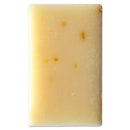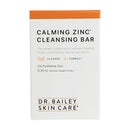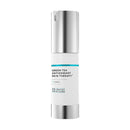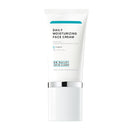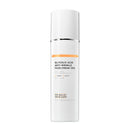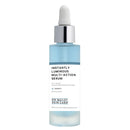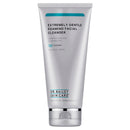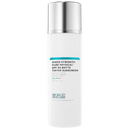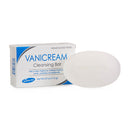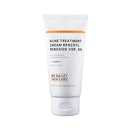Top 5 Villains That Will Spark an Acne Break Out

We’ve all had it, hated it and tried to beat it. It seems to flare up at the worst of times. Acne – the bane of teenage skin that, for some, it persists well into adulthood. As a dermatologist, we have all the tools to fight acne but what can you do to prevent it from starting in the first place?
The cause of acne is complicated since many factors play a role in a break out including hormones, lifestyle, age and skin care regimens. I'm going to take them one by one to help you gain insight into what triggers may spark your breakouts.
What causes acne?
The very first thing that happens when a new pimple starts is the clogging of a pore in our skin. Normally, dead skin cells are shed and don’t stick to our pores. But unfortunately, when our oil glands produce sebum (oil), the dead skin cells stick to the pore like glue. In turn, this is the perfect setup to lead to overgrowth of a bacteria called C. acnes that normally live on our skin and in the pores. When the pore is clogged, the bacteria have the perfect little home and they flourish, which can lead to inflammation and pimples.

Fortunately, dermatologic skin care science has tools to fight C. acnes bacteria, clogged pores and the inflammation of acne.
My Ultimate Acne Solutions Skin Care Kit works because it combines benzoyl peroxide (the best ingredient to target C. acnes) with salicylic acid (the best ingredient to penetrate oily clogged pores) and glycolic acid (to brighten skin and fight blackheads). I include the right acne-friendly moisturizer to prevent skin dryness. Together, this routine helps control acne from the outside in.
What can YOU do to prevent acne from flaring in the first place?
Here are 5 villains, a.k.a., triggers, of acne that may help you prevent it from rearing its ugly head.
1. Your beauty routine can cause acne
There is a type of acne called "acne cosmetica." This is a result of pore-clogging substances in your cosmetics. The top comedogenic ingredients include:
- lanolins (acetylated lanolin alcohol, PEG 16 lanolin)
- lauric acid
- cetyl acetate
- ethylhexyl palmitate/octyl palmitate
- isopropyl isostearate
- isopropyl linolate
- isopropyl myristate
- myristyl myristate
Read labels and watch out for these acne villains.
It’s also very important to wash your makeup brushes on a regular basis to prevent bacterial folliculitis from germs on your brushes.
2. Hormones are always part of the acne problem

“Male hormones” called androgens are present in both men and women. These hormones overstimulate the oil glands which, as mentioned earlier, causes dead skin to get stuck into our pores. During a woman’s menstrual cycle, testosterone is relatively higher in proportion to other female hormones like estrogen and progesterone. This accounts for why women’s acne tends to flare up before and during their menstrual cycle.
It’s sometimes helpful for women to understand that taking extra special care of their skin right before and during their menstrual cycles can make a difference. There are also ways to combat “hormonal acne” with oral medications and you can ask your doctor about them.
3. Diet can trigger acne
There have been many studies on what foods cause acne. In the past, dermatologists thought that food did not play a role in acne, though our patient's thought otherwise. Well, the patients were right! Recent studies suggest that there are some foods that make acne worse.

One of these types of foods have a high “glycemic index,” meaning they spike your blood sugar. High sugar foods can make acne worse. Dairy-based foods also seem to make acne worse as do bad fats like those found in "junk foods."
The key is to eat foods that keep your blood sugar at a steady state and that are not full of dairy and bad fats. Of course, eating a healthy diet is always a good idea.
For more information on how to eat an anti-inflammatory diet, be sure to check out my free e-book "How to Eat Your Way to Beauty and Health." This guide details what you need to know to have healthy and beautiful skin. It also provides a diet plan and 14 days of recipes to help get you started on the right track. Remember, this way of eating is a good way to keep your blood sugar even and combat inflammation.
4. Stress in our lives is never a good thing, including for acne breakouts.

This is also true when it comes to our skin and acne. Stress leads to the release of a substance called cortisol, which is a steroid hormone that works kind of like testosterone hormones do as far as increasing the production of sebum.
The other thing that can happen under stress is people may pick at their pimples more. This may result in a condition called “acne excoriee” or "picker’s acne." This is a condition where people feel compelled to pick and squeeze even at the slightest sign of a pimple. Sadly, picking can lead to scarring and it is really important not to do it! Some people that feel compelled to do this may have underlying depression.
5. Medications can sometimes trigger acne.
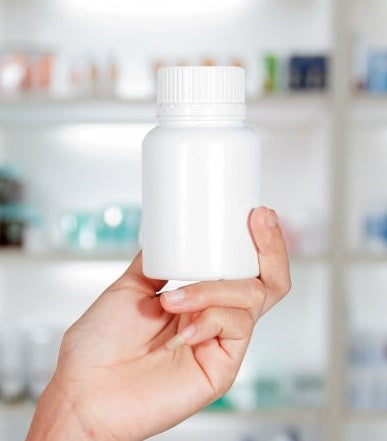
There are certainly medications that are known to trigger acne. Medications like lithium (used to treat bipolar disorder and depression), steroids like prednisone or anabolic steroids used for body building, among others, can trigger acne.
If you started a new medication and developed or experienced worsened acne, ask your doctor if the medication may be the cause.
 While you are sorting out which of these triggers is sparking your acne breakouts, get on am acne-clearing skin care routine proven to work. Click here to learn more about the Ultimate Acne Solutions Kit
While you are sorting out which of these triggers is sparking your acne breakouts, get on am acne-clearing skin care routine proven to work. Click here to learn more about the Ultimate Acne Solutions Kit
Please know that the information in the Dr. Bailey Skin Care web site, and related links, articles, newsletters and blogs, is provided for general information and educational purposes only. It is the opinion of Dr. Cynthia Bailey, or other indicated authors. Consult your physician or health care provider for any specific medical conditions or concerns you may have. (This also applies to patients in her medical practice; the information here is not a substitute for, or an extension of, the medical care she provides for you.) Never disregard professional medical advice or delay seeking it because of something you have read here. Use the information and products on this site at your own risk. Use of this site indicates your agreement with these statements and the Terms and Conditions of DrBaileySkinCare.com. If you do not agree to all of these Terms and Conditions of use, please do not use this site!

